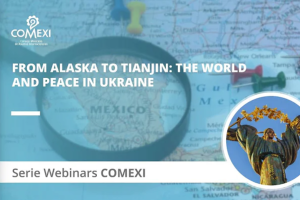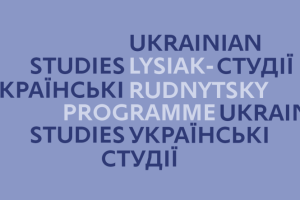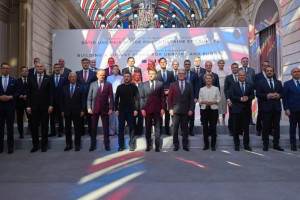How to reintegrate the Donbas and restore trust in state institutions – experts give answers

This study lasted for six months. It took place in eight government-controlled cities of Donetsk and Luhansk oblasts, and included a series of public and expert opinion polls, roundtables, focus groups and meetings with local government officials and civic activists.
Its purpose wasn’t simply to measure the public attitude of residents of these regions. And the goal wasn’t to identify the regions’ problems because in the four years of war they are for the most part known.
One of the main goals of this project was to involve local communities as much as possible to influence decision making at the local level since the majority of people not only don’t understand how to change the situation, they don’t believe in their own strength at all.
Thus, the analytical report titled, “The State of Public Consciousness in the Donbas: an Assessment of Trends, Forecasts and Recommendations for Government Policy on Reintegrating the Donbas,” is based on a comprehensive study and includes, in particular, a series of recommendations for civil society organizations in terms of what and how to act in order to regain the trust of Ukrainian citizens in the Donbas regarding the use of democratic methods to resolve current problems.
The Ilko Kucheriv Democratic Initiatives Foundation, which is grateful to the British Embassy in Ukraine for supporting this project, invited all interested experts, government officials and journalists to discuss these problems and provide their own thoughts.
The director of the Democratic Initiatives Foundation, Iryna Bekeshkina, at the start of the discussion highlighted the overall findings of the study, and noted that the majority of the population of Ukraine in every region is categorically against having the Donbas detached and exist like Abkhazia or Transnistria.

“Let our politicians say what they will, but the survey’s findings affirm that this isn’t acceptable for Ukraine’s citizens,” the sociologist noted. Despite that, there is no single view on what should be the government’s policy on restoring the sovereignty of the occupied territories among the residents of Donetsk and Luhansk regions – 41% of them want peace at all costs, 14% support the idea of giving separatists “special status,” 7% want to introduce a federative system, and another 7% aren’t averse to giving amnesty to combat participants.
Beyond that, public attitudes can be influenced, according to the sociologist. Then they will actually change: “Public attitudes aren’t static no matter how infected they might be in the occupied territories – they can be altered.” What happens in government-controlled territories has a direct impact. “When we ask people of this region – Donetsk and Luhansk oblasts – what’s most important for the reintegration of the occupied territories, one viewpoint absolutely prevails: the success of policies on Ukrainian-controlled territories. The more successful reintegration is there, the more successful they’ll be economically, the more people who live in the occupied territories will be persuaded there,” Iryna Bekeshkina said.
The foundation director also noted that the majority of Ukraine’s population doesn’t consider the people who remained in the occupied territories as traitors. “An absolute majority considers them victims, as hostages to circumstances that arose. And this is significant,” she emphasized.
Another cross-cutting finding that immediately emerges upon visiting frontline government-controlled cities and towns of the Donbas is that there is not much difference (unlike what speculative politicians like to say) between the residents of different Ukrainian regions. This view was expressed by the report’s co-author, Petro Burkovskyi, the head of the department of political systems development at the National Institute of Strategic Studies and associate expert at the Democratic Initiatives Foundation.

“Everywhere, the same people live, they have the same problems with the same hopes, and this is reflected in surveys,” the analyst noted. “But life conditions differ. And one should make adjustments for those people who live next to a real armed conflict that affects their world outlook.”
Being there and seeing these conditions, one begins to understand the people who want peace at all costs, the expert says. He emphasizes: everyone should understand this, including officials in Kyiv, representatives of various political forces, and the expert community.
A number of conditions are needed to reintegrate these regions and restore trust in government institutions. They include safety issues, holding elections, incentives for economic development, unlocking decision-making at the local level, and investigating crimes committed against the state and communal authorities. One of the key issues is resolving problems in rural areas affected by war when land was taken from people for the government’s needs. Citizens also express an acute need for creating jobs, restoring the work of enterprises and establishing transparent communication.
“Recommendations for civic councils were expressed,” Petro Burkovskyi said. “So that they not only criticize but also function as expert groups together with [government] administrations, ministries, to develop projects, and offer specific actions and solutions to problems.”
Given that people best know what the local problems on the ground are, they should be active and act for themselves, said Valentyn Krasnopyorov, coordinator of the Strong Communities movement. “Positive cases exist,” the expert said. “Take, for example, Dobropillya. There, people learned how to organize and solve local problems – infrastructural, displaced people, homeless animals, and they take part in the budget process.”

There are many such examples. People actually can influence this government, noted the expert, but there are big questions to authorities.
“Local residents know already that the administration gives for projects half the money and city councils give the other half. But the local council sabotages decisions and projects get closed. Citizens themselves don’t distinguish which levers [of influence] they have, what local councils have, what the central government has. As a result, there are no discussions or pluralism, solutions come out crooked,” the leader of Strong Communities complained. “According to him, the military-civilian administrations remain absolutely undemocratic. Local governments in the frontline zone use taxpayers’ money for self-promotion and don’t go deep into the problems of inhabitants in the region.
“Here in Kyiv they are drafting a law on the military-civilian administration, but it isn’t being discussed with anybody at the local level,” said Valentyn Krasnopyorov. “Lawmakers, these elected deputies, the Bakulins and Gellers (reference to Yevhen Bakulin of Luhansk oblast and Yevheniy Geller of Donetsk oblast –Ed.), use parliament’s resource that they dispose of manually. They arrive at communities having wrung funds from parliament and build playgrounds in their names all for self-promotion. Communication with local residents is absent.” In this manner, the civic activist noted, the State Development Fund is being destroyed, and Europe, in turn, is halting future money disbursements for regional development. “Because Europe is saying that you can’t manually spend this money,” the expert stated.
Recommendations by the head of the Donetsk Institute of Information, Oleksiy Matsuka, foremost related to information. The expert called on journalists to the intolerability of using hostile language in the media, hanging labels on who is “white” and who is “black,” and applying offensive words towards ordinary people who live in the non-controlled territories.

“We need less discord and more bridges and relations with people,” the journalist said. “Instead, we notice more hate speech in Ukrainian media, in the media that operates in eastern Ukraine. At the government level,
hostile language shouldn’t be popularized, there should be certain policies for reintegration, a policy to promote deeper exposure to the Ukrainian informational space among people,” he emphasized.
Oleksiy Matsuka also noted the lack of initiatives for spreading ideas on protecting human rights in the Donbas, and in Ukraine overall. “We don’t see enough efforts in the informational sphere that promote a political and diplomatic path towards resolving the conflict that the president and government constantly affirm. We see more angry statements about the [trade] blockade and emotional statements on the need for punishing people who today are on either side of the political barricade.”
A particular point among the journalist’s recommendations should be the demand for transparent budgetary distribution in the region. “People should know what kind of budget Donetsk and Luhansk oblasts have, how much money is allocated for social security, civilian checkpoints, medical care, the contact line, assistance to people in the frontline zone and how government decisions are being implemented for establishing [new] civilian checkpoints,” underscored Oleksiy Matsuka. According to him, these issues are absent during the decision-making process at the oblast administration level and among stakeholders. Everything is still decided manually.
The study very successfully shows a sense of injustice in public policy as demonstrated by respondents to the survey, says Oleksandr Klyuzhev, an expert at the Opora civic network.

“The state is ambiguous about holistic things. One legislative act calls Russia an aggressor, while another takes a critical position on the opposite end. Regarding ordinary people, including residents of the occupied territories and displaced people, the state is principled and says these people should be under control, that they shouldn’t ‘finance terrorist activities.’ And people feel this,” the expert said.
This concerns in the first place the disparity between government policy, in particular legislative aspects of military action, relations with the Russian Federation, and the state’s treatment of the civilian population. All this relates to the draft law оn the reintegration of the Donbas, says Oleksandr Klyuzhev. “In all the discussions of the new draft law, we started with the intent that somehow we need to react, assess or implement mechanisms for resisting Russian aggression, yet we ended up tightening the screws on ordinary residents of these territories.” Such a situation leads to the outcome that Russia expects through its propaganda when residents of occupied territories are made into key enemies, according to the expert.
Oleksandr Klyuzhev also touched on the topic of elections. To hold or not to hold elections in areas that face serious challenges is a decision that should be based solely on security reasons. “Opora has prepared additional legislative regulations on the electoral process in such areas,” explained the expert on voters’ rights. “However, the decision that was made in 2015 without any procedure, without verification of the reasons for either holding or not to hold local elections, in essence, provoked a situation where local elites and the regional leadership manipulated certain circumstances depending on the political context that were beneficial to them or not.”
This also is an unacceptable situation not only from the standpoint of adhering to the Constitution and legislation, but also from the viewpoint of how people perceive the situation developing, and that undermines to an extent the legitimacy of government actions in these territories,” said Oleksandr Klyuzhev.
Director of Vostok-SOS, Oleksandra Dvoretska, focused on the sensitive issues that her organization observes. The biggest problem of the Donbas, she says, is that the most active people are leaving the area. “If some still can be found in bigger cities like Severodonetsk, Kramatorsk or Mariupol, then smaller towns are left without such people who are capable of making an impact and participate in change processes,” the civic activist noted.

Civic activity is low also because people don’t understand what is happening,” explains Oleksandra Dvoretska. They’re disoriented so they pay more attention to what the central government is doing. But Kyiv can’t decide whether there will be a law on the Donbas, will elections take place and what kind of policy there should be toward the non-controlled and occupied territories. “It’s tough to teach people about participatory methods when the Ministry of Temporarily Occupied Territories still doesn’t have civic councils created,” said the civic leader. “This doesn’t help getting expert opinion across to people.”
There’s also a sense of injustice among Donbas residents over the fact that those who committed crimes haven’t faced justice. “People at the local level know who plunders their territory, and who held the so-called referendums. And when they see them holding office, in the Verkhovna Rada, and the inability of law enforcement to punish these persons, then accusations sound different that they had summoned [for Russia],” the civic activist said.
Having more dialogue with people, explaining all government decisions and processes taking place in Kyiv and the Donbas, about all the actions along the front line – this should be what the government does – emphasized Oleksandra Dvoretska.
National lawmaker Nataliya Veselova agrees with her – when one gives a person hope that they can achieve their goals, then they will start realizing their plans.

The elected official used Pokrovsky district as an example where a scandal erupted between communities. Rural communities didn’t want to be incorporated into cities. In turn, city mayors wanted to incorporate the villages. It turned out that neither side knew how to move forward and how they would develop their communities after amalgamation. “I spoke with each side trying to initiate dialogue between them in order to identify the problem and get working on it,” explained Nataliya Veselova. “So that the rural communities could start working on a community development plan and not on something declarative that needs to be submitted to the oblast military-civilian administration and check off the list, but to include them in a prospective plan.”
The lawmaker is convinced that the politicians who represent the regions should take part in these processes, explain them to people and give them hope.
Regarding possibilities to resolve the armed conflict and reintegration, then time is against us, noted Nataliya Veselova. “The more time goes by, the more complicated the reintegration process will be. But Ukraine can use the period between the presidential elections in the Russian Federation and Ukraine when we’ll have an actual chance to resolve the armed conflict on the territory of the Donbas. That’s how I see it,” underscored the national deputy, noting that many objective reasons and moments indicate this. She also voiced hope that next year the president of Ukraine and the entire diplomatic corps will work on returning the Donbas and Crimea.
Ministry of Informational Policy of Ukraine adviser Dmytro Tkachenko, who also heads the analytical center Donbas Factory of Thought, spoke about the country’s informational policy on the Donbas.

There is certain improvement, according to him, both on the instrumental and communicative level. But to say that the policy, as an effective component of a general policy of de-occupation and reintegration is developed, is premature. “In this world, he who controls the television, controls reality. Unfortunately, the television in the occupied territories practically is in complete control by the collaborationist regime and the Kremlin,” said Dmytro Tkachenko.
It begs the question of what to do with the Donetsk television tower that sends an analog signal to Pokrovsk and Kostyantynivka; and in T2 to Dnipropetrovsk and Zaporizhya oblasts, as well as to Slovyansk?
“Turchynov’s ‘devices’ that mute the signal in liberated territories isn’t a system for resolving this issue,” said the expert. Another option other than physically disabling this TV tower, he doesn’t see. However, this isn’t the position held by the Ministry of Informational Policy but the position of his analytical center.
On the positive side, a Ukrainian television tower came into service in Novobakhmutivka this year. This means that most of the “blank spots” in Luhansk oblast are covered. On the negative side, a tower wasn’t put into use in the Donetsk oblast town of Pokrovsk. This means that a “blank spot” for Ukrainian TV and radio signals from Adviivka to Maryinka and Pokrovsk remains. Therefore, solving the problem of improving the quality of Ukrainian TV broadcasting in the government controlled areas and expanding it to non-controlled territories remains a priority of the state’s informational policy and transfers over to 2018, said Dmytro Tkachenko.
Chief editor of the Ostrov internet portal Serhiy Harmash expressed doubts about the very expediency of discussing changes in the reintegration policy of Donbas because he thinks that such a policy doesn’t exist.

“In the fourth year of war, such a policy is absent,” the journalist said. “The same for a government strategy, an understanding of what to do with this region is void.” According to Serhiy Harmash, the current document in this field so far is the Minsk peace agreements that envision giving special status to this region, the Russian language, relations of the region with Russia, as well as amnesty. At the same time, as indicated, only 14% of residents in the controlled part of the Donbas support giving special status and only 7% amnesty to all combat participants. The conclusion is obvious, says the Ostrova chief editor – we have a huge disparity in public expectations of the reintegration policy and the actual policy that the government implements based on its commitments. He also expressed his opinion that in reality a “policy of disintegration” is being carried out, that the region and its people are being dissociated, arguing that: “This is a well-known, warn out fact on pension payments. I realize and support the idea of not paying out pensions in the occupied territories. Although there isn’t a way for the government to do this, it would obviously support the separatists. But what right does government have not to pay pensions on its territory to its citizens who come to this area regardless of where they are domiciled?! Not one official can give a logical explanation for this.”
Deputy Minister of Temporarily Occupied Territories and Internally Displaced People Heorhiy Tuka, commenting on the study’s figures, noted a big difference in public attitudes between Luhansk and Donetsk oblast residents with regard to influencing government.

“Twenty-six percent of Luhansk residents say that they are completely unable to influence government, whereas in Donetsk oblast the figure is 41%,” the official noted. To restore trust to the state, he suggested starting with government institutions. “Our government is personified and that’s a huge mistake. I do not know studies if this is true in other countries, but this personalization is just beyond common sense,” the deputy minister said in surprise.
Another opinion Heorhiy Tuka expressed was to postpone elections across the country for 5 to 10 years.
“I would propose altogether for a certain period – 5 to 10 years – to ban elections nationwide. In a country at war, elections act to only sow discord and divide society. An example is elections in Severodonetsk. They took part while I served [as governor] in the Luhansk state administration. It was the first time that the “Opposition Bloc” got a minority of seats in the city council. The next day, Radical Party and Batkivshchyna members united with the Opposition Bloc and within a day held a no-confidence vote on the mayor who legitimately was elected by 67% of voters. For two years the city has been paralyzed,” explained the official regarding a moratorium on elections.
Heorhiy Tuka also spoke of interesting tidbits that our European neighbors observed in how the Ukrainian government behaves in the Donbas. “They see a huge positive that in our ministry’s name there is the phrase, ‘temporarily occupied.’ They categorically recommend disavowing the use of such terms as, ‘demarcation line,’ ‘separation line,’ and at best use, ‘line of contact.’ At civilian checkpoints, they don’t recommend at roadblocks to use markings with state symbols, thereby transforming these crossing points to a state border. Donetsk oblast is solid Ukrainian on both sides of the line.”
Event participants also made the following recommendations: eliminate discriminatory practices of pension payments; review the policy of “exclusion,” “quotas and taboos” in informational policy that only have the opposite effect; to be prepared for a strategy by the adversary to limit the movement of people, frequent searches at checkpoints, the seizure of vehicles with Ukrainian license plates, etc.
Summarizing, the experts noted that with this study, people who live in the government-controlled territories, near the war, themselves identified the priorities of how to move ahead. Politicians and civic activists just need to listen and help.








